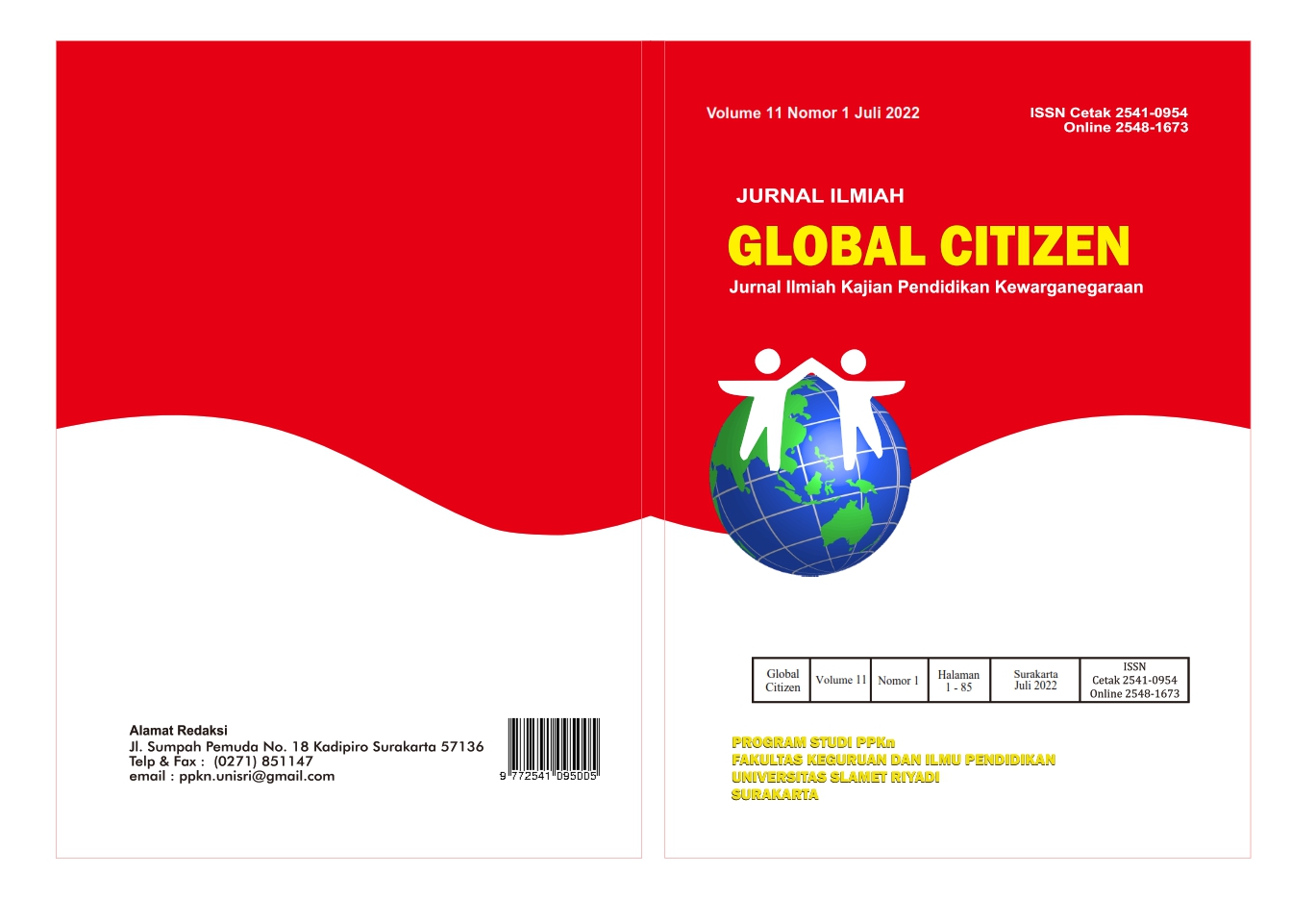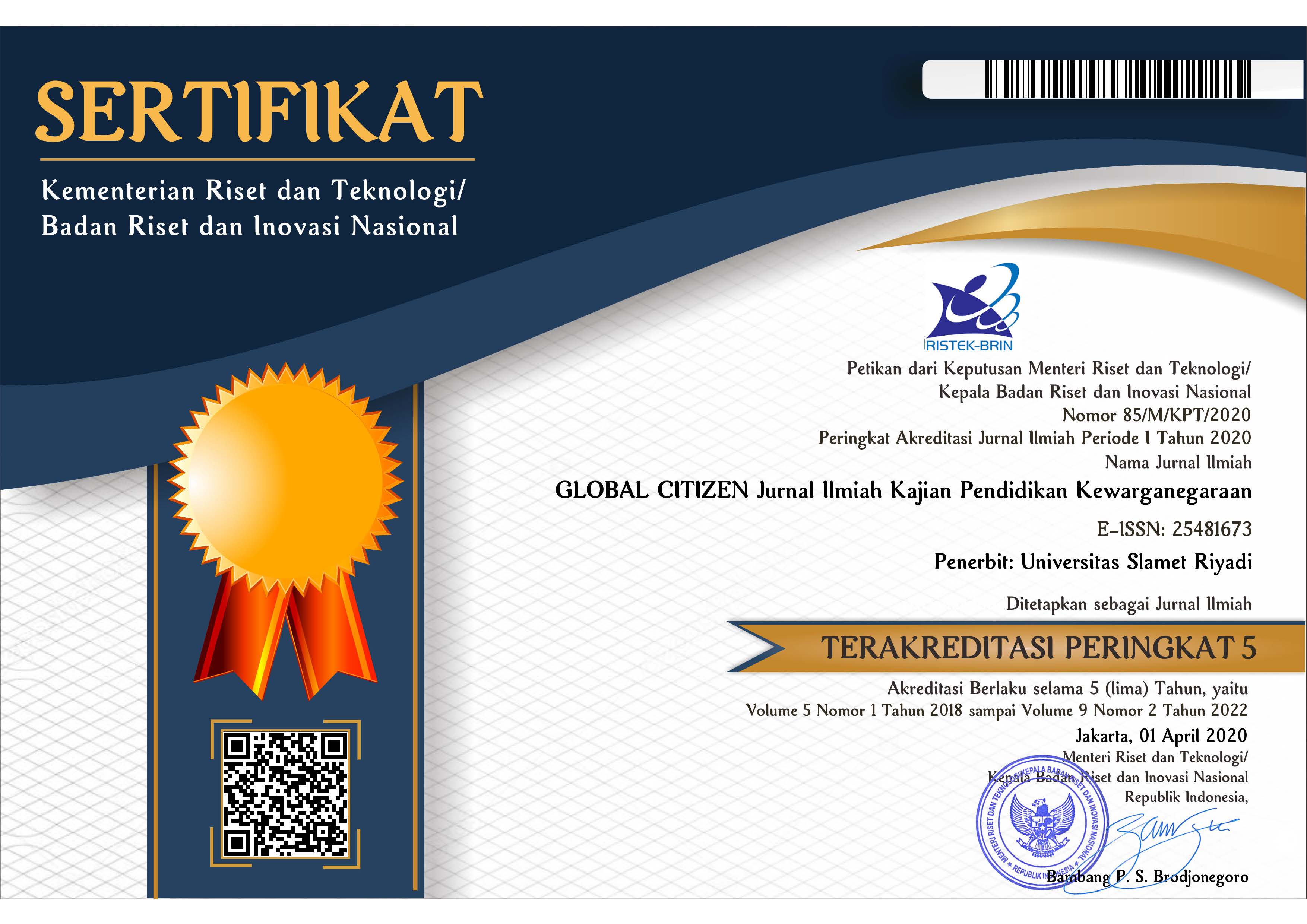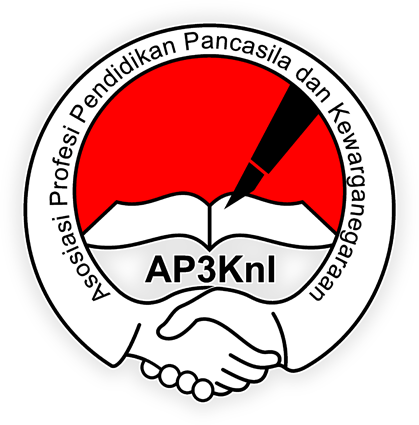PELAKSANAAN TRADISI BANJAR BEGAWE DAN IMPLEMENTASI NILAI-NILAI PANCASILA (Studi Desa Suwangi Timur Kecamatan Sakra Kabupaten Lombok Timur)
PELAKSANAAN TRADISI BANJAR BEGAWE DAN IMPLEMENTASI NILAI-NILAI PANCASILA (Studi Desa Suwangi Timur Kecamatan Sakra Kabupaten Lombok Timur)
DOI:
https://doi.org/10.33061/jgz.v11i1.7477Abstract
This study aims to determine the implementation of the banjar begawe tradition and the implementation of Pancasila values ​​in East Suwangi Village, Sakra District, East Lombok Regency. This research uses a qualitative approach with a descriptive type of research. The subjects in this study were the community of cultural actors, namely members of the Banjar Begawe and the informants in this study were the head of the Banjar Begawe and religious leaders. Data collection techniques in this study using observation, interviews, and documentation. The data analysis techniques used are data reduction, data presentation, and conclusion drawing. The results of this study regarding the implementation of the banjar begawe tradition and the implementation of Pancasila values ​​in East Suwangi Village, Sakra District, East Lombok Regency, among others, are as follows: the implementation process includes, preparation stage, implementation stage, stage, closing. The preparatory stage consists of deliberation, and preparing tools and materials. The implementation stage consists of a begawe (party) event. The closing stage consists of praying and remembrance together and eating together. The timing of the implementation of the banjar begawe tradition is uncertain, but the benchmark is if one of the family members of the banjar begawe is married, mate (died), or is going to hold another celebration. the parties involved are members of the banjar begawe, family and relatives who hold the begawe event, and religious leaders. implementation of Pancasila values ​​in the banjar begawe tradition in East Suwangi Village, Sakra District, East Lombok Regency.

Downloads
Published
How to Cite
Issue
Section
License
Copyright (c) 2022 ASRIFITRIANI

This work is licensed under a Creative Commons Attribution-NonCommercial 4.0 International License.
Authors who publish this journal agree to the following terms:
- Authors retain copyright and grant the journal right of first publication with the work simultaneously licensed under a Creative Commons Attribution License that allows others to share the work with an acknowledgement of the work's authorship and initial publication in this journal.
- Authors can separately make additional contractual arrangements for non-exclusive distribution published by the journal (e.g., publish it in a book), with an acknowledgement of its initial publication in this journal.
- Authors are allowed and encouraged to send their work via online (e.g., in the institutional repositories or their website) after published by the journal.















